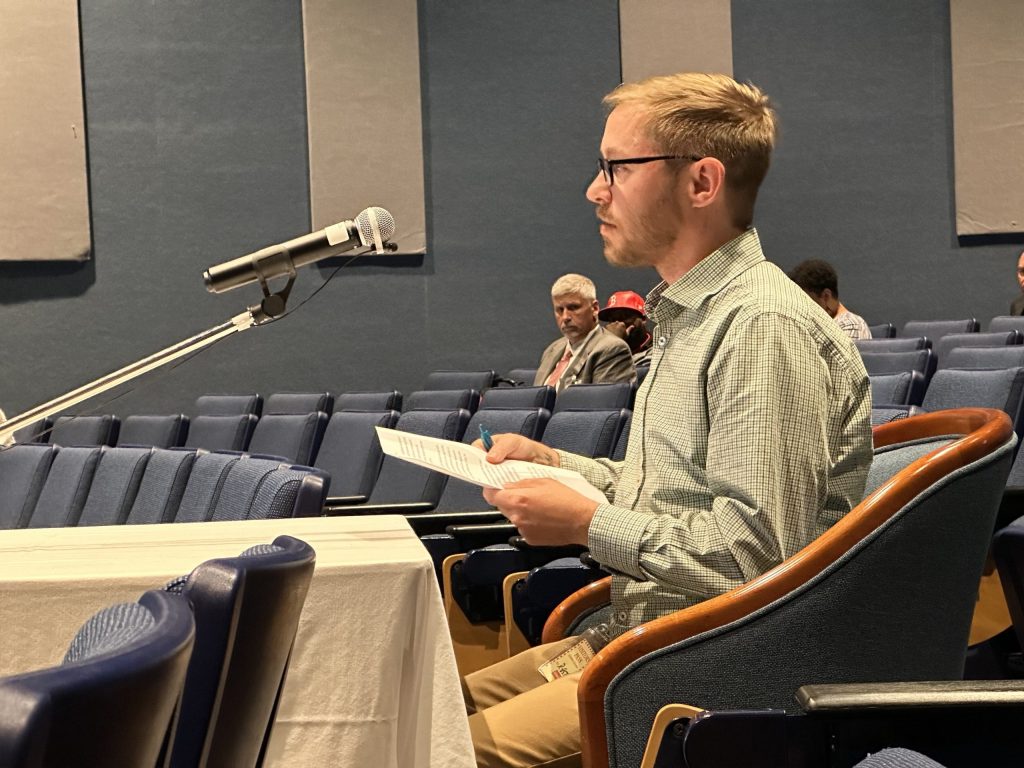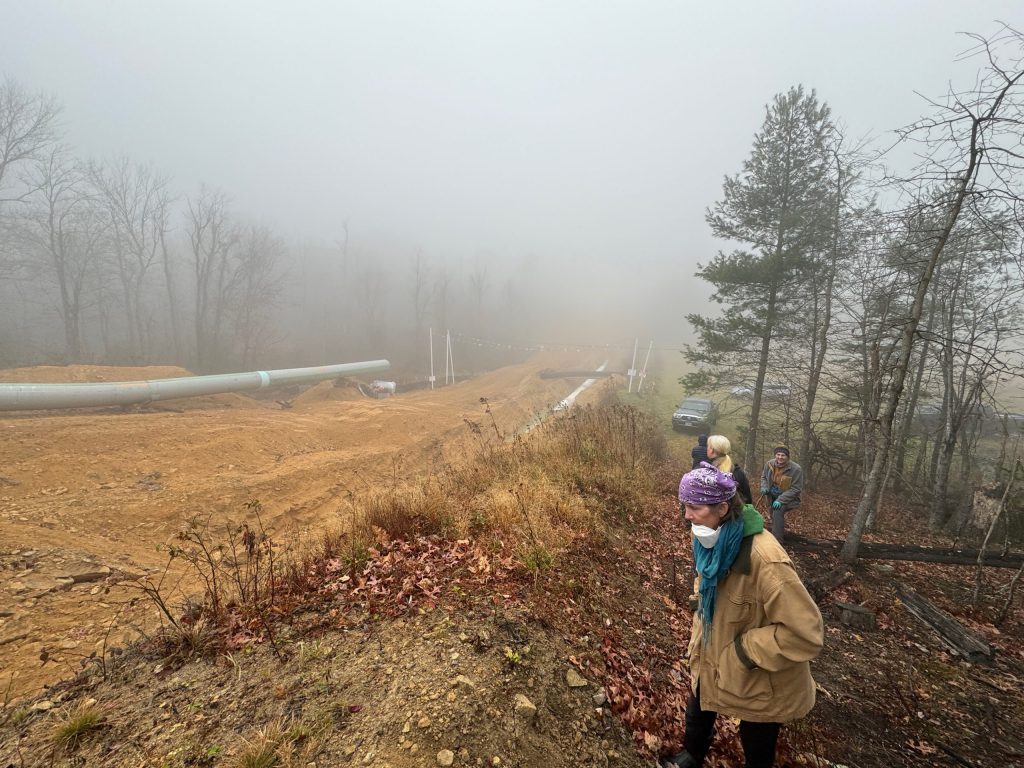Written by Dan Radmacher
Dan Radmacher
Dan is Appalachian Voice's Media Specialist. Previously, he worked as an opinion journalist for newspapers in Illinois, West Virginia, Florida and Virginia, and then as a communications consultant for a number of environmental nonprofit organizations.
Provision to block silica standard included in new appropriations bill
The House Appropriations Committee has included a provision in the annual appropriations bill for the Departments of Labor, Health and Human Services, and Education that would block funding for the recently finalized rule to protect miners from silica dust — a significant driver of the resurgence of black lung disease in Central Appalachia.
Layers of injustice: Community concerns ignored as federal regulators allow Mountain Valley Pipeline to begin operation
Community members have fought this pipeline for 10 years — pointing out its many flaws and dangers and winning court battles by proving developers and regulators were ignoring laws meant to protect communities and the environment. Now, those regulators allow the pipeline to go into service.
North Carolina Utilities Commission public hearing to review Duke Energy’s plans for new gas plant in northern Person County
This Thursday, the North Carolina Utilities Commission will hold a public hearing to gather feedback on Duke Energy’s plans to build the first of two new methane gas power plants near its existing coal plant on Hyco Lake in Person County.
Federal government allows failing Mountain Valley Pipeline to go in-service
Today, the Federal Energy Regulatory Commission has allowed the Mountain Valley Pipeline to go in-service. This announcement arrives after a decade of community-led resistance to the pipeline project. MVP has doubled in cost and delayed completion for six years due to failures to comply with environmental protections and resulting legal challenges.
Appalachian groups and impacted communities unveil flood resilience policy priorities
ReImagine Appalachia, Appalachian Citizens’ Law Center and the National Wildlife Federation were joined by local elected officials and advocates today to detail a four-pillar flood resilience policy roadmap for Appalachia. Nearly forty groups have endorsed the platform.
Mountain Valley Pipeline Safety Issues Continue
The recent failure of a section of pipe during testing has heightened residents’ long-standing concerns about deteriorated pipe and rushed construction putting their safety at risk.
The Peoples’ Protector
From fighting the Mountain Valley Pipeline to building a community garden, protecting people is at the heart of Crystal Mello’s work.
Lawmakers miss opportunity to protect climate compact, invest in vulnerable communities
According to news reports, members of the budget conference committee failed to include language in the new budget insisting that the Commonwealth remain a part of the Regional Greenhouse Gas Initiative.
Biden Admin Finalizes Silica Rule Update
A new federal rule would cut miners’ exposure to silica dust, but miners and their advocates have concerns about whether industry will follow the new rule under the current enforcement mechanisms.










